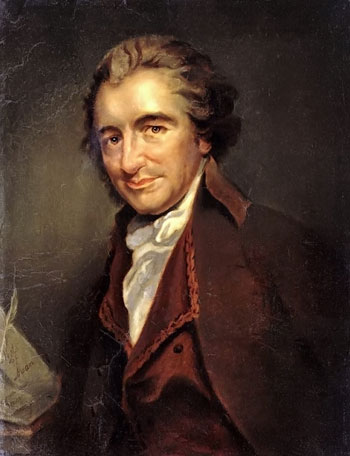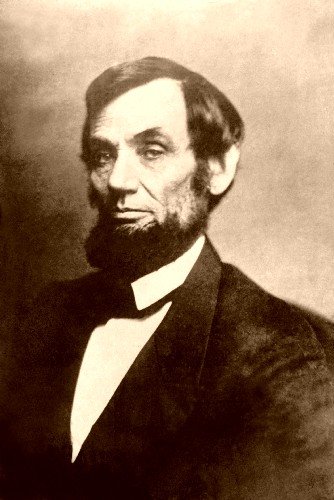George Washington


"Gouverneur Morris had often told me that General Washington believed no more of that system (Christianity) than did he himself." -Thomas Jefferson’s private journal, Feb. 1800
"Religious controversies are always productive of more acrimony and irreconcilable hatreds than those which spring from any other cause. Of all the animosities which have existed among mankind, those which are caused by the difference of sentiments in religion appear to be the most inveterate and distressing, and ought most to be depreciated. I was in hopes that the enlightened and liberal policy, which has marked the present age, would at least have reconciled Christians of every denomination so far that we should never again see the religious disputes carried to such a pitch as to endanger the peace of society." - letter to Edward Newenham, 1792
Historian Barry Schwartz writes: "George Washington's practice of Christianity was limited and superficial because he was not himself a Christian... He repeatedly declined the church's sacraments. Never did he take communion, and when his wife, Martha, did, he waited for her outside the sanctuary... Even on his deathbed, Washington asked for no ritual, uttered no prayer to Christ, and expressed no wish to be attended by His representative." [New York Press, 1987, pp. 174-175]
Thomas Jefferson:
"Religious controversies are always productive of more acrimony and irreconcilable hatreds than those which spring from any other cause. Of all the animosities which have existed among mankind, those which are caused by the difference of sentiments in religion appear to be the most inveterate and distressing, and ought most to be depreciated. I was in hopes that the enlightened and liberal policy, which has marked the present age, would at least have reconciled Christians of every denomination so far that we should never again see the religious disputes carried to such a pitch as to endanger the peace of society." - letter to Edward Newenham, 1792
Historian Barry Schwartz writes: "George Washington's practice of Christianity was limited and superficial because he was not himself a Christian... He repeatedly declined the church's sacraments. Never did he take communion, and when his wife, Martha, did, he waited for her outside the sanctuary... Even on his deathbed, Washington asked for no ritual, uttered no prayer to Christ, and expressed no wish to be attended by His representative." [New York Press, 1987, pp. 174-175]
Thomas Jefferson:

“The whole history of these books [the Gospels] is so defective and doubtful that it seems vain to attempt minute enquiry into it: and such tricks have been played with their text, and with the texts of other books relating to them, that we have a right, from that cause, to entertain much doubt what parts of them are genuine. In the New Testament there is internal evidence that parts of it have proceeded from an extraordinary man; and that other parts are of the fabric of very inferior minds. It is as easy to separate those parts, as to pick out diamonds from dunghills.” -Thomas Jefferson, letter to John Adams, January 24, 1814
“Christianity neither is, nor ever was a part of the common law.” -Thomas Jefferson, letter to Dr. Thomas Cooper, February 10, 1814
"Millions of innocent men, women and children, since the introduction of Christianity, have been burnt, tortured, fined, imprisoned; yet we have not advanced an inch towards uniformity. What has been the effect of coercion? To make one half the world fools, and the other half hypocrites. To support roguery and error all over the earth."- "Notes on Virginia"
“It is between fifty and sixty years since I read it [the book of Revelation], and I then considered it merely the ravings of a maniac, no more worthy nor capable of explanation than the incoherences of our own nightly dreams.”-Thomas Jefferson, letter to General Alexander Smyth, Jan. 17, 1825
Benjamin Franklin

"I wish it (Christianity) were more productive of good works ... I mean real good works ... not holy-day keeping, sermon-hearing ... or making long prayers, filled with flatteries and compliments despised by wise men, and much less capable of pleasing the Deity."- Works, Vol. VII, p. 75
"Lighthouses are more helpful than churches."
"The way to see by faith is to shut the eye of reason."-in Poor Richard's Almanac .
"I looked around for God's judgments, but saw no signs of them."
"In the affairs of the world, men are saved, not by faith, but by the lack of it."
". . . Some books against Deism fell into my hands. . . It happened that they wrought an effect on my quite contrary to what was intended by them; for the arguments of the Deists, which were quoted to be refuted, appeared to me much stronger than the refutations; in short, I soon became a thorough Deist."
James Madison (4th president and author of the Federalist papers)

“What influence, in fact, have ecclesiastical establishments had on society? In some instances they have been seen to erect a spiritual tyranny on the ruins of the civil authority; on many instances they have been seen upholding the thrones of political tyranny; in no instance have they been the guardians of the liberties of the people. Rulers who wish to subvert the public liberty may have found an established clergy convenient auxiliaries. A just government, instituted to secure and perpetuate it, needs them not." - "A Memorial and Remonstrance", 1785
"Religious bondage shackles and debilitates the mind and unfits it for every noble enterprise."-letter to Wm. Bradford, April 1, 1774 .
John Adams:
 "As I understand the Christian religion, it was, and is, a revelation. But how has it happened that millions of fables, tales, legends, have been blended with both Jewish and Christian revelation that have made them the most bloody religion that ever existed?"-letter to F.A. Van der Kamp, Dec. 27, 1816
"As I understand the Christian religion, it was, and is, a revelation. But how has it happened that millions of fables, tales, legends, have been blended with both Jewish and Christian revelation that have made them the most bloody religion that ever existed?"-letter to F.A. Van der Kamp, Dec. 27, 1816"I almost shudder at the thought of alluding to the most fatal example of the abuses of grief which the history of mankind has preserved-- the Cross. Consider what calamities that engine of grief has produced!"-letter to Thomas Jefferson
"The divinity of Jesus is made a convenient cover for absurdity. Nowhere in the Gospels do we find a precept for Creeds, Confessions, Oaths, Doctrines, and whole cartloads of other foolish trumpery that we find in Christianity."
"This would be the best of all possible worlds, if there were no religion in it."
Tom Paine (Called the Firebrand of the Revolution)

"Of all the tyrannies that affect mankind, tyranny in religion is the worst."
"What is it the New Testament teaches us? To believe that the Almighty committed debauchery with a woman engaged to be married; and the belief of this debauchery is called faith."
"I do not believe in the creed professed by the Jewish Church, by the Roman Church, by the Greek Church, by the Turkish Church, by the Protestant Church, nor by any Church that I know of. My own mind is my own Church. Each of those churches accuse the other of unbelief; and for my own part, I disbelieve them all."
"All national institutions of churches, whether Jewish, Christian or Turkish, appear to me no other than human inventions, set up to terrify and enslave mankind, and monopolize power and profit."
"The study of theology, as it stands in the Christian churches, is the study of nothing; it is founded on nothing; it rests on no principles; it proceeds by no authority; it has no data; it can demonstrate nothing; and it admits of no conclusion."
Other
1796 Treaty of Tripoly written under George Washington and signed under John Adams states that America was “in no sense founded on the Christian religion”
1796 Treaty of Tripoly written under George Washington and signed under John Adams states that America was “in no sense founded on the Christian religion”
In a sermon of October 1831, Episcopalian minister Bird Wilson said,
“Among all of our Presidents, from Washington downward, not one was a professor of religion, at least not of more than Unitarianism.”
Abraham Lincoln (not a founding father, but an influential president):
“The Bible is not my book, nor Christianity my profession”

“The Bible is not my book, nor Christianity my profession”

An interesting note I also learned this year is that Lincoln got elected with only 40% of the popular vote, Adolf Hitler got 41.3%.

I'd agree on all of them except Madison. Madison hated established religion (like the Church of England) but did not have the same distain for Christianity that Jefferson or Paine had. I think one might be able to make the case for him being a Christian due to his relationship with John Winthrop and the full volume of his letters, at least his biographer Ralph Ketcham makes that case. Madison even used Jonathan Edwards once to argue against liberarian free will to a friend!
ReplyDeleteI have some hope for John Adams. Adams grew up Congregationalist and flirted with Unitarianism later in life to be popular with the elite. But his son shows that the earlier Adams may have influenced Quincy more than the later Adams.
Hmm. You know much more about American History than I do at this point. I in no way am for these Anti-Christian founders and statesmen I just was out to prove a point.
ReplyDeleteEven though Paine is so biting towards Christainity, for some reason there is something about his writing that I love.